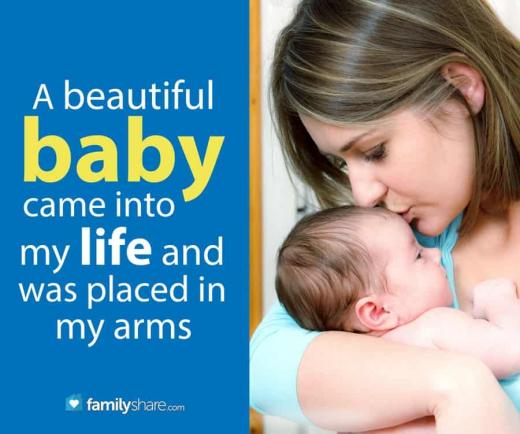
I didn't want to be pregnant, but I was. I experienced a relentless depression as if I was living in a tunnel, a black and all-encompassing tunnel, and I suffered from anxiety. Though not a planned pregnancy, which might have added to the mental disorders, the doctors diagnosed my symptoms to be a result of chemical and hormone imbalances.
I was going to have a baby. I eventually accepted my condition, and rejected an implication to abort the child.
American Pregnancy Association states, "Pregnancy is supposed to be one of the happiest times of a woman's life, but for many women this is a time of confusion, fear, sadness, stress, and even depression. According to the American Congress of Obstetricians and Gynecologists (ACOG), between 14-23 percent of women will struggle with some symptoms of depression during pregnancy...Depression is an illness that can be treated and managed during pregnancy, but the first step, seeking out help and support, is the most important."�
Here are some suggestions to help deal with depression and anxiety during pregnancy.
-
Seek medical attention and therapy to deal with low energy, lack of interest, hopelessness, and worthlessness. Restlessness, worry, sleep problems, and irritability are dominant factors in anxiety. Educated professional psychiatrists can help expectant mothers handle mental health issues. Talk therapy is valuable.
-
Avoid medications, if possible. There are some medications, only if prescribed by your doctor, which might be necessary to use for severedepression and anxiety during pregnancy. The concern that the medications could cause defects to the unborn child usually isn't worth the risk of taking anti-depressants, but work closely with your doctor.
-
Exercise and get plenty of fresh air.
-
If you can, try to sleep through the night. Rest during the day.
-
Eating healthy improves mental problems and helps relieve concerns that the baby might not be receiving proper nutrition. Avoid caffeine, alcohol, sugar, and highly-processed carbohydrates.
-
Have family and friends take turns staying with you to help pass time and to keep your mind active. Engage in pleasant conversation.
-
Divert attention from mental pain by working on a project or hobby. Make a quilt for the baby.
-
Let volunteers fix meals and do housework.
-
Get away from the house. Go out to dinner with spouse weekly.
-
Take heed when friends and doctors remind you that depression and anxiety are not going to last long. The pregnancy willcome to an end. Hang in there! Take advantage of medication and therapy after the birth of your child, if needed.
A beautiful baby came into my life and was placed in my arms. She was healthy, and I was safe from the mental pain I had experienced during my pregnancy. Her birth brought great joy to me and to my family.

